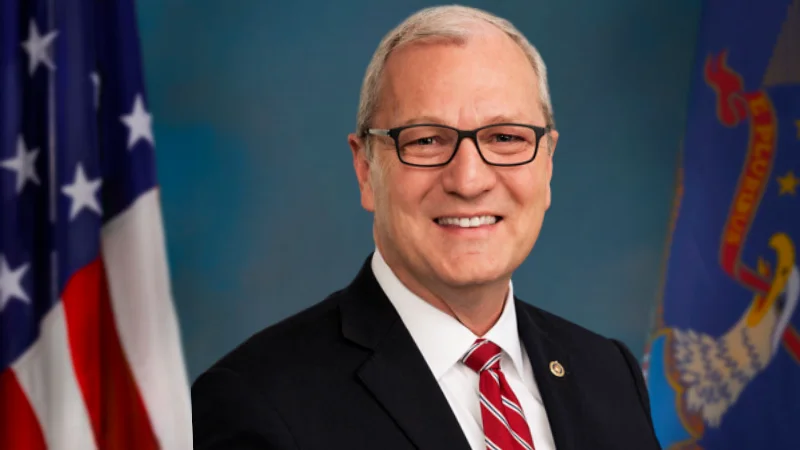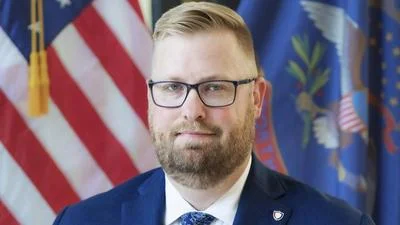Senator Kevin Cramer, US Senator for North Dakota | Senator Kevin Cramer Official website
Senator Kevin Cramer, US Senator for North Dakota | Senator Kevin Cramer Official website
The U.S. Senate has passed three bipartisan appropriations bills for Fiscal Year 2026, providing funding for military construction, veterans’ affairs, agriculture, rural development, food and drug oversight, technology infrastructure, physical and cyber security, and the legislative branch.
Senator Kevin Cramer of North Dakota highlighted the significance of these measures for his state. “As us North Dakotans know, our state contributes a great deal to feeding, fueling, and protecting the nation and our bill that we passed tonight really reflects that critical role,” he said. “It also includes my bipartisan language that ensures North Dakota is not neglected when we pursue suicide prevention grants for our veterans. Boy, I applaud Senate Appropriators for clearing these measures out of committee with strong, bipartisan support and to Majority Leader John Thune for keeping his promise to move through regular order. This has to be replicated for the rest of the appropriations process to ensure we have a transparent process that engages all the members of Congress and restores confidence in the Congress among the people of our country.”
The military construction and veterans affairs portion funds Department of Defense projects while preventing realignment or closure of Guantanamo Bay. It also prohibits the Department of Veterans Affairs from purchasing technology equipment from certain Chinese manufacturers listed by several federal agencies.
Provisions are included to improve VA medical care and information technology systems as well as support electronic health records and access to mandatory benefits for veterans. The bill provides additional funding to design an Armory for the National Guard in Jamestown and allocates $702.8 million toward Supportive Services for Veterans Families (SSVF), which serves all counties in North Dakota through regional Community Action Agencies.
Senator Cramer has worked on mental health care access for veterans as a member of SVAC. In April, he introduced legislation with Senator Chris Coons aimed at prioritizing suicide prevention grant applications from states like North Dakota that have not previously received such funding. The FY26 Military Construction and Veterans Affairs Appropriations title includes language reflecting this effort.
In agriculture-related provisions, funding is directed toward securing food supply chains, supporting producers and rural communities, facilitating agricultural research programs—including $3.6 billion allocated—and providing nutrition assistance domestically and internationally. Programs are funded to protect crops and livestock from diseases while supporting meat inspection programs at state levels.
Resources are provided to help ranchers comply with electronic identification tag requirements; $10.5 billion is set aside for farm loans; $1.6 billion goes to the Farm Service Agency; closures of FSA county offices are prohibited under this legislation.
To build on previous national security plans related to farming—such as those initiated during the Trump administration—the bill supports efforts in animal health biosecurity while directing USDA transparency regarding research collaborations with countries considered adversarial by U.S. policy.
Rural communities will benefit from $1.7 billion each in rural development programs and rental assistance; $26 billion is dedicated toward housing loans; $1.3 billion supports water/waste grants/loans; small businesses receive $1.8 billion in aid; broadband expansion receives significant investment including immediate grants totaling $96 million plus over half a billion dollars available via low-cost telecom loan authority.
Food assistance continues through established federal nutrition programs targeting seniors as well as women with children.
For legislative branch operations: $865 million is allocated to U.S Capitol Police—with most designated for personnel costs—while maintaining authority to reimburse mutual-aid support up to $10 million; maintenance/modernization funds totaling $545 million go toward Architect of Capitol projects alongside bans on bonuses if deadlines/budgets aren’t met; Library of Congress receives nearly $600 million overall.
Other allocations include increased budget transparency resources at Congressional Budget Office ($71 million), oversight at Government Accountability Office ($812 million), workplace rights office ($8 million), along with continued restrictions against purchasing certain foreign-made drones or telecommunications equipment by USCP/AOC.






 Alerts Sign-up
Alerts Sign-up